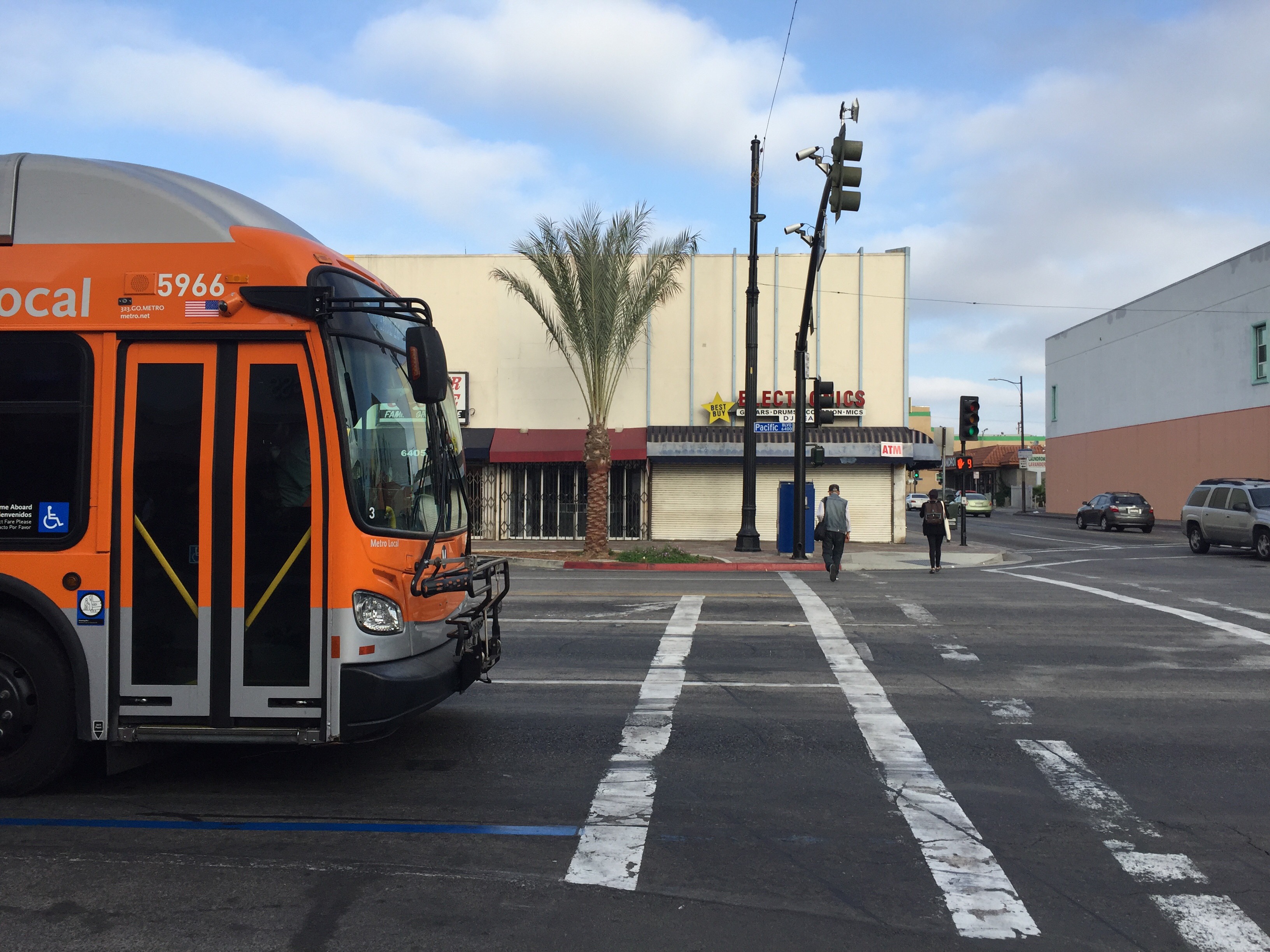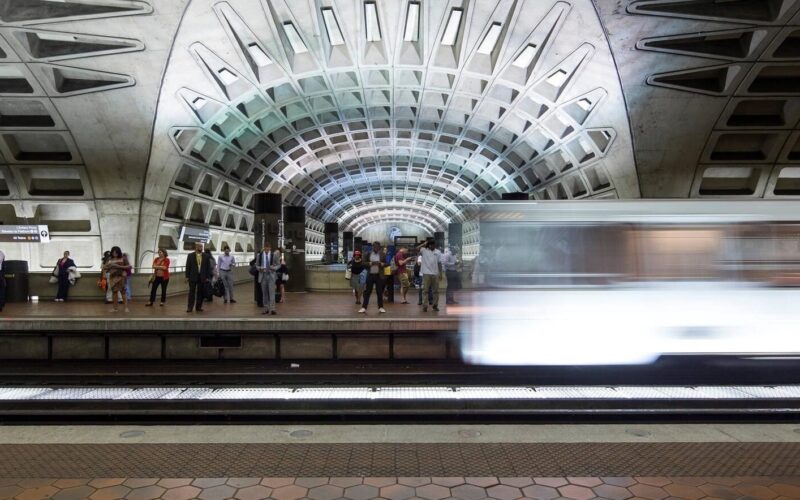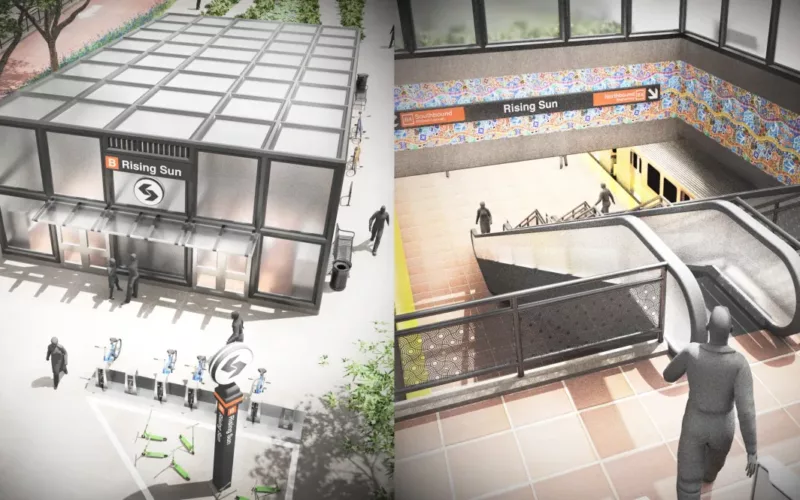
LA Metro has decided it can no longer afford to overlook 70% of its transit riders. Since acknowledging that plunging bus ridership is a problem in Los Angeles, the agency is moving on several fronts to try to stabilize and recover bus patronage. The urgency the agency is demonstrating should be noted in places like New York and Washington DC, where buses are also suffering a deep decline in service quality and usage, but where response to the problem has been sluggish and inadequate.
In addition to the three-year bus route network overhaul the agency announced in May, Metro is also proposing a new Action Plan to improve bus speeds and on-time performance.
The plan is outlined in a recent staff memo to Metro’s board. It says Metro will work with municipal government to remedy congestion hot-spots, and argues that “one time capital expenditures to implement transit priority solutions will be far less costly than the ongoing operating expense to address speed and reliability.” Metro says it has been adding bus runs to cope with the declining speed reliability on many routes.
The memo provides several perspectives on declining bus speeds, noting that by all measures, bus travel times have gotten longer, causing reliability to suffer.

To move quickly and head off potential resource problems at the municipal level, Metro intends to bring on consultants with traffic engineering expertise who can design and recommend traffic signal and street configuration strategies that can get Metro buses moving again.
It remains to be seen how quickly Metro and its consultants will be able to wrangle local governments, including the City of Los Angeles, and navigate the thickets of local politics when it comes to getting buses moving through L.A.’s traffic, but the agency’s urgency in crafting a program to respond to the problem is commendable and noteworthy in an area that is generally short on policy attention and resources.
Metro staff say they intend to provide an update in six months on results of the effort.
 On the Brink: Will WMATA’s Progress Be Erased by 2024?
On the Brink: Will WMATA’s Progress Be Erased by 2024?
The experience of being a WMATA rider has substantially improved over the last 18 months, thanks to changes the agency has made like adding off-peak service and simplifying fares. Things are about to get even better with the launch of all-door boarding later this fall, overnight bus service on some lines starting in December, and an ambitious plan to redesign the Metrobus network. But all of this could go away by July 1, 2024.
Read More To Achieve Justice and Climate Outcomes, Fund These Transit Capital Projects
To Achieve Justice and Climate Outcomes, Fund These Transit Capital Projects
Transit advocates, organizers, and riders are calling on local and state agencies along with the USDOT to advance projects designed to improve the mobility of Black and Brown individuals at a time when there is unprecedented funding and an equitable framework to transform transportation infrastructure, support the climate, and right historic injustices.
Read More